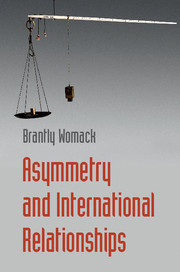Book contents
5 - Cycles and Sustainability
from PART III - WORLD SYSTEMS
Published online by Cambridge University Press: 05 December 2015
Summary
In this chapter we finally reach the starting point of most international relations theory: great powers and great wars. However, we arrive from a different vantage point. Rather than first opening our eyes at the top of the mountain of power, we have climbed up from the microstructure of bilateral asymmetric relationships and through the foothills of multilateral and regional relationships. From this perspective, “great powers” are simply the ultimate greater powers, and there are limits to their capabilities to coerce their asymmetric relationships. The diplomatic options of the great power are different primarily in scale from other asymmetric relationships. To denizens of a great power it may seem artificial to take seriously asymmetric relationships at the global level. The vivid concerns of a great power are set by its own perception of its interests and of threats to its interest – those it sees eye-to-eye with – and by definition lesser powers cannot challenge. Great power international relations theory thus speaks directly to concerns about rivals and the emergence of challengers. However, in an asymmetric relationship, the vividness of one side's perspective is misleading, and no perspective is more asymmetric than that of a world power. Often, the decisive failures of great powers occur in their relations with smaller powers.
The first task here is to distinguish between world systems and regional subsystems. In a world system, whether it be “all within the four limits” of Cyrus the Great, the Chinese “all under heaven,” or the United States in the post–Cold War world, there are no higher power systems. The dilemma of middle power status that defined the situation of regional powers is transcended, but new pitfalls emerge. Precisely because a world system is not externally constrained, a world power can easily assume that it can maximize its interests against the rest with no risk. In fact, however, domination draws a line between the interests of the world power and those of other states, and even though it is hard to organize against a world power the incentive to resist increases.
- Type
- Chapter
- Information
- Asymmetry and International Relationships , pp. 147 - 173Publisher: Cambridge University PressPrint publication year: 2015



